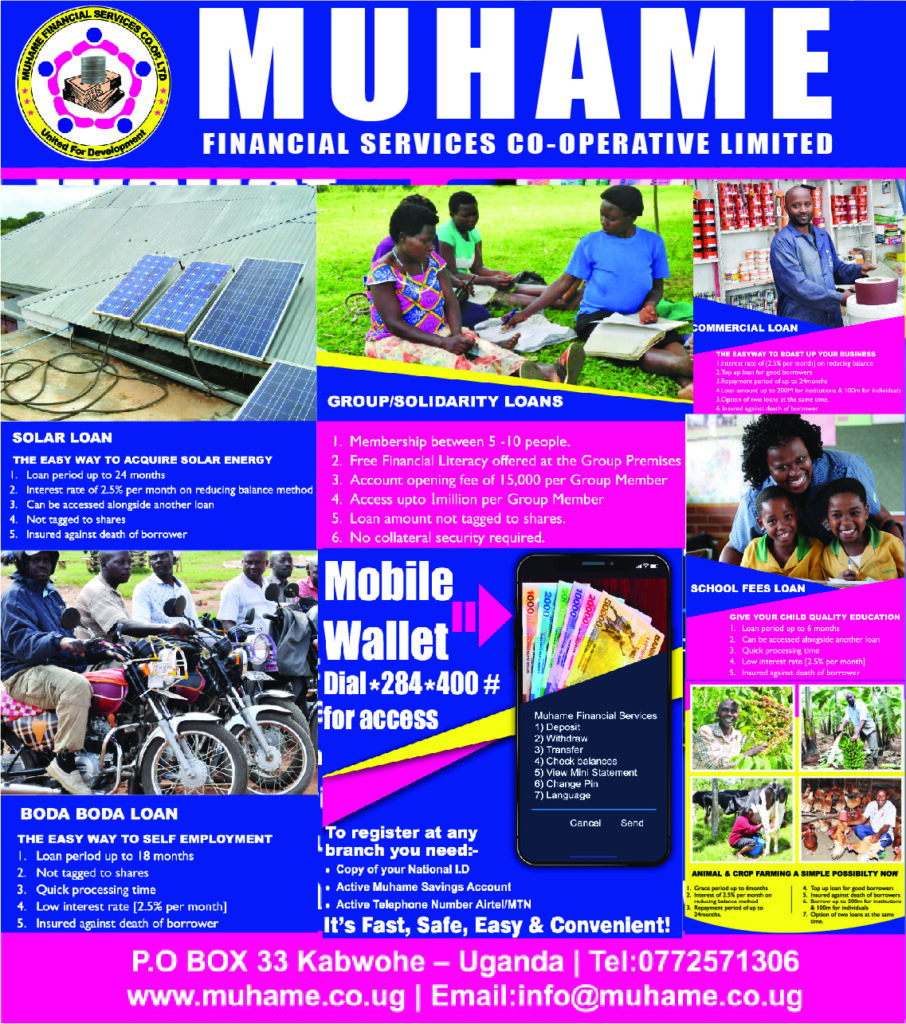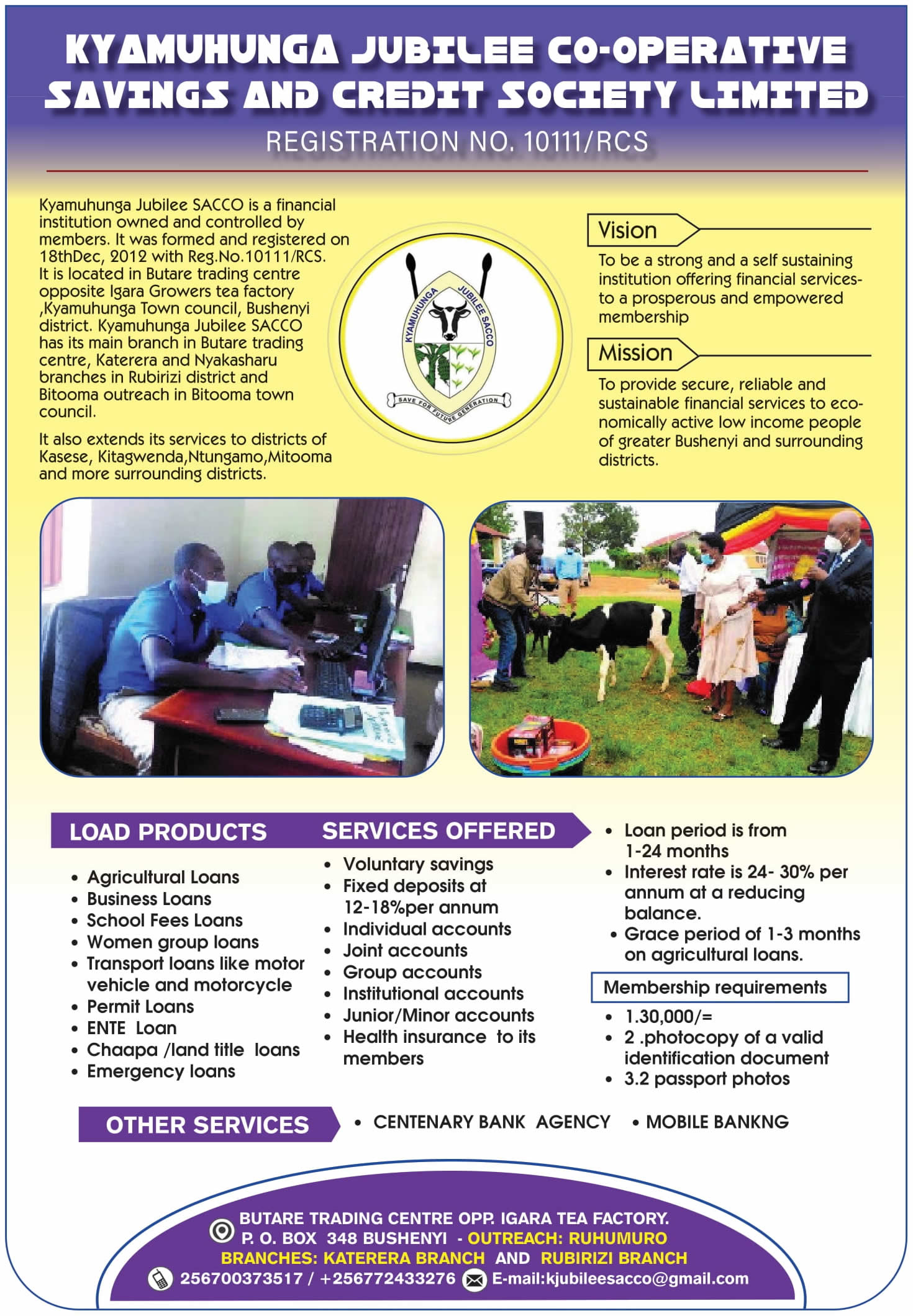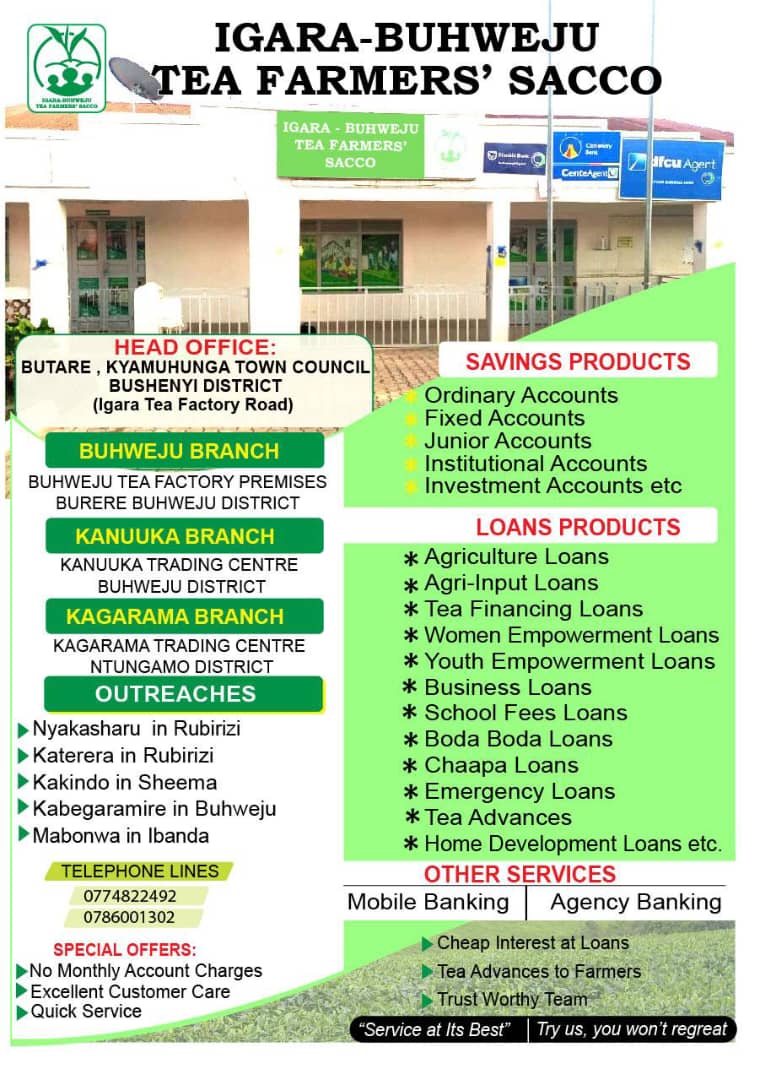OPINION: WORKFORCE AND SOCIAL PROTECTION IN UGANDA IN THE FACE OF COVID-19
By www.mknewslink.com
In Bushenyi

About Corona virus
Beginning in December 2019, in the region of Wuhan, China, a new (“novelâ€) coronavirus began appearing in human beings. It has been named Covid-19 , a shortened form of “coronavirus disease of 2019.â€
While it was initially seen to be an epidemic in China, the virus spread worldwide within months affecting almost all countries in the world most especially United States of America, Italy, Spain, France, Germany, United Kingdom and Iran as most hit and of course Africa.
The World Health Organization (WHO) declared Covid-19 a pandemic in March, and by the end of that month, the world saw more than a million (1,358,169) confirmed Infected cases, and has resulted into several deaths (75,932) reported across the globe at the time of writing this article on 7 th April 2020. (Source: WHO, US CDC)
As the incidence of reported positive coronavirus cases  continues to increase, and countries try out different measures to curb the spread of the pandemic, countries across the globe are imposing stay-at-home (lockdown) orders in attempts to curb the disease spread.
Hoping to counter the virus; spread, Italy, France, Spain, Belgium, the United Kingdom, South Africa, Colombia, Bolivia, Jordan, Uganda and Tunisia have already implemented countrywide quarantine policies.
With the coronavirus pandemic, people all over the world have become more aware of the best practices during a pandemic , from careful hand-washing to social distancing.
Countries across the world declared mandatory stay-at-home measures, closing schools, businesses, and public places. Dozens of companies and many more independent researchers began working on tests, treatments, and vaccines.
The push for the human race to survive the pandemic  became the primary concern in the world. Corona virus is similar to pandemics in history such as the Spanish flu, the AIDS pandemic, and more.
Corona virus and workforce
Corona virus has posed high levels of vulnerability to all people but more especially among casual workers who earn daily. For example, the lockdown has left the majority of the workers worried about how to survive without any income.
At the time of this writing, its still unclear and impossible to predict how the future will shape up especially in regard to retaining labour force or even paying the human resource that existed at the time of the lockdown.
It is Important to note that most developing countries have a huge informal sector, with no formal earnings. In Uganda, up to 80% of the labour force works in the informal economy and most of this is essentially “underemployment†since most of the workers still don’t earn enough to escape poverty. Over 50% of GDP (UBOS,2014) is attributed to the informal sector, up from 43% in 2002.
It is easy to underestimate the contribution this sector can make on an economy. The majority live on hand to mouth situation daily. Therefore with lockdown in place, and even where it is not yet implemented, businesses are almost on stand still because there are no trade partners to deal with.
The focus of every country now is to fight the pandemic, but so far with limited success. There is a lot of lost income arising from these situations. It, therefore, goes to indicate the impact of the virus on the labour force and earnings as more people withdraw from actively participating in the economy because of the lockdown.
There is increasing public fear of not only the health impact of the virus (in terms of deaths to be recorded and the overstretching of health facilities) but also the income shocks associated with it e.g national revenue will decrease arising from the affected sectors such as business, tourism and remittances.
This raises concerns on whether the existing social protection systems such as the social assistance to the elderly, NSSF for the formal private workers are able to mitigate the growing potential of economic shocks as a result of coronavirus.
Workforce and social Protection
According to Nakajubi, 2020, National data indicates that 67% of all people in non-agricultural employment in Uganda are in the informal sector. This includes the informal self-employment and informal wage employment with such characteristics as unprotected workforce, non-existent contracts, casual labourers, industrial out-workers among others.
In the face of a health shock whereby such individuals cannot offer their labour even for a day, they would not earn and hence very difficult for them to survive.
Generally, social protection is a set of public and private interventions that address the deprivation and vulnerabilities of the poorest and the need of the currently non- poor for social security in the face of shocks and the particular demands of different stages of the life cycle.
In Uganda, social protection expenditure is still limited with the country spending just about 0.9% of GDP on the different interventions both contributory and non- contributory. This in effect limits the impact but also overall returns in the long run
(Nakajubi, 2020)
In Uganda, the existing social protection is provided by government for the public servants under the public service pension scheme (Pensions Act, Cap. 286.), which entitles the beneficiaries their savings when they have retired from active service.
The other social protection is for the formal private sector provided by the National Social Security Fund (NSSF) and other such as the social assistance grants extended to the elderly aged 65 years and above. Here entitlement to own savings is clearly stated in the NSSF Act (NSSF Act, Cap 222) and excludes situations like the coronavirus has posed.
During this time of the pandemic and subsequent lockdown, workers have scratched their heads on how to survive especially when the additional savings on top of NSSF is almost not there because of poor saving culture, poverty, poor pay etc. Questions have been asked on whether NSSF can pay a portion of member’s savings to help backup their financial situation, but NSSF hands are tied because they are guided by the established law. (NSSF Act, Cap 222; sections 19 – 24)
Recommended strategies for averting the spread of coronavirus (COVID-19), according to health experts, is social distancing, Quarantine and isolation for those who have been exposed or have symptoms of the infection such cough, fever, tiredness and difficulty in breathing (severe cases).
Social distancing, also called “physical distancing,†means keeping space between yourself and other people outside of your home.
In enforcing these strategies, some countries like Uganda have implemented a stay at home directive. These situations have resulted into closure of most businesses and enterprises.
Some have opted to leave lean human resources to keep running
the key operations of the businesses, while the majority workers have been forced to stay home because of the emergency situation the virus has caused.
In the circumstances, governments are trying to respond to the impending crisis arising from the risks of having people die of hunger.
Some governments including Government of Uganda have mobilised and distributed food items to what has been defined as "most vulnerable people leaving out other sections of the population that are equally affected though in different magnitudes.
It is anticipated that the situation will get worse if the lockdown in Uganda goes beyond the 2-3 weeks.
Need for social protection systems
The need for shock responsive social protection especially in Uganda, is very evident. This is grounded in the fact that its not easy to predict when the situation will normalise and people go back to work. But even then, there is a likelihood of loss of jobs for some individuals in order for enterprises to recover from the shock.
According to ILO, almost 25 million jobs could be lost worldwide as a result of COVID-19.
The preliminary assessment note on the need to minimize the impact on global unemployment (as happened in the global financial crisis of 2008/9), calls for urgent, large-scale and coordinated measures across three pillars: protectingworkers in the workplace, stimulating the economy and employment, and supporting jobs and incomes. (ILO, 18 March 2020)
These measures include extending social protection, supporting employment retention (i.e. short-time work, paid leave, other subsidies), and financial and tax relief, including for micro, small and medium-sized enterprises.
In addition, the note proposes fiscal and monetary policy measures, and lending and financial support for specific economic sectors.
Shock-responsiveness Social protection is defined as intrinsically intended to
support people in the event of a shock or help to mitigate their susceptibility to shocks. shock-responsive social protection system’ is considered as one that can respond flexibly in the event of an emergency—referring implicitly to covariate shocks, those that affect large numbers of people and/or communities at once, rather than the idiosyncratic shocks such as the death of a breadwinner that may affect individual households or household members. (www.ipc-undp.org/pub).
This is what would effectively respond to the current global pandemic. A number of interventions have been suggested as pathways to making existing social protection systems shock responsive that include;Â Â 1. Increasing on the existing benefits (in case of NSSF) to include payments in case of emergencies like this one caused by COVID 19.
This requires amendment of the existing law to provide for such. Although this would still cater for the few currently covered by NSSF.
2. Expanding the scope and coverage to include new beneficiaries to an existing programme / scheme. This may include the extension of the coverage of an existing programme to include workers currently not covered by the scheme, modifications of entitlement rules or relaxation of requirements/ conditionalities to facilitate participation. Again this requires new legislation.
3. Adjusting the social protection system to refocus assistance on groups most vulnerable to the shock e.g slum dwellers.
4. Extending social support to the elderly in Uganda. Currently being undertaken though covering only those aged 80+years. The need for holistic coverage of all elderly starting from 65 years ad above is critical.
However, such approaches may not be tenable for low resourced economies. It is therefore important that countries and Uganda in particular embrace approaches to social protection that build the resilience of the citizens in times of economic shocks like the one posed by the fast-spreading corona virus.
Recommendations
1. Government should define, profile and generate database of most vulnerable which should be regularly updated as the status of people in this category keeps changing over years, with some dropping off as a result of welfare improvement while other fall in the category because of situations.
2. Establish a social assistance fund (probably managed under Ministry of Labour) to cater for emergencies like these. This would be put in the national budget.
3. Review of the existing pension laws to incorporate short term benefits for emergencies like this that has been presented by coronavirus.
4. Support to the elderly/unemployed by giving them the social assistance grant beginning from retirement age and above and not 80 years as many of them will have died. We should note that those who have been supporting the elderly are currently not working and yet these elderly need to survive.
5. Establish a universal and mandatory Health Insurance Scheme to cover the formally and informally employed/unemployed. This would be very helpful in situations like we are currently facing, whereby if anybody became sick, they wouldn’t be worried about how, where and the cost of treatment because this would be covered under the universal health insurance scheme.
6. Provide free and accessible adult/continuing/vocational education to those uneducated. During this lockdown time, we have seen people with a lot of idle time while they stay home. The education would help in creating aware about avoidable illness, adherence to treatment requirement but also more importantly, in such situations like we are currently experiencing, people who are already trained, would put their skills to good use. Skills like
tailoring, good farm management practices etc would be handy in such situations. This way, shocks posed by situations of similar nature would be easily absorbed.
References
1. NSSF Act, CAP 222; sections 19 – 24
2. Pensions Act, Cap. 286.
3. Nakajubi, 2020: Social Protection in the face of COVID-19
4. https://cbtpafrica.org/
5. www.ilo.org/ newsroom , 18 March 2020)
6. www.who.int › docs › situation-reports › 2020: Coronavirus disease 2019
(COVID-19)
7. www.cdc.gov
8. www.ipc-undp.org/pub
9. www.ourworldindata.org
10. www.reuters.com › article › us-health-coronavirus-usa-cdc
Janan Mubehamwe
Valley University of Science and Technology
www.mknewslink.com a greater western Uganda news website
Email: wmuhwezi75@gmail.com
Tel: +256702680106






























 Views Today : 537
Views Today : 537 Views Yesterday : 745
Views Yesterday : 745 Views Last 7 days : 3164
Views Last 7 days : 3164 Views This Month : 9425
Views This Month : 9425 Total views : 1434108
Total views : 1434108 Who's Online : 0
Who's Online : 0 Your IP Address : 18.220.200.197
Your IP Address : 18.220.200.197